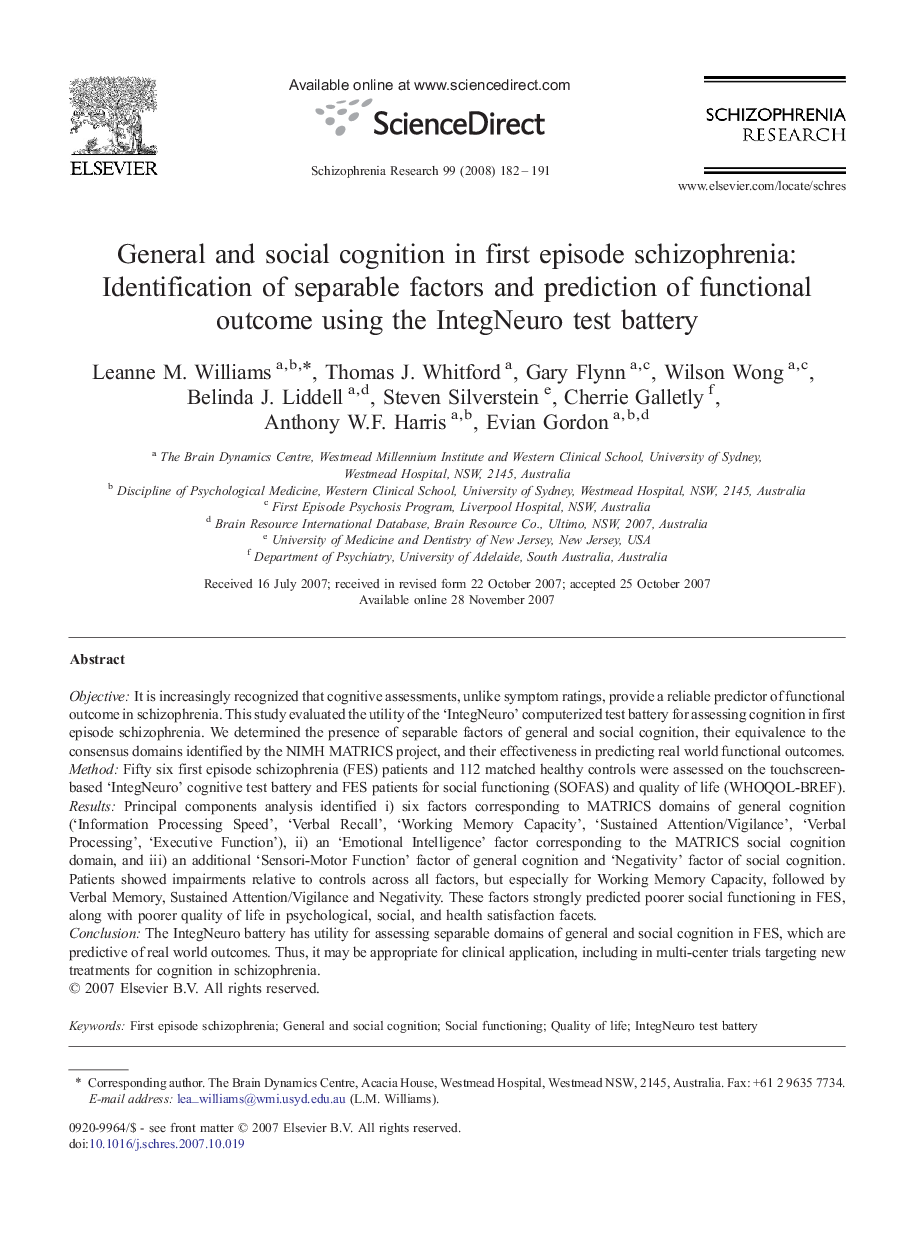| Article ID | Journal | Published Year | Pages | File Type |
|---|---|---|---|---|
| 339987 | Schizophrenia Research | 2008 | 10 Pages |
ObjectiveIt is increasingly recognized that cognitive assessments, unlike symptom ratings, provide a reliable predictor of functional outcome in schizophrenia. This study evaluated the utility of the ‘IntegNeuro’ computerized test battery for assessing cognition in first episode schizophrenia. We determined the presence of separable factors of general and social cognition, their equivalence to the consensus domains identified by the NIMH MATRICS project, and their effectiveness in predicting real world functional outcomes.MethodFifty six first episode schizophrenia (FES) patients and 112 matched healthy controls were assessed on the touchscreen-based ‘IntegNeuro’ cognitive test battery and FES patients for social functioning (SOFAS) and quality of life (WHOQOL-BREF).ResultsPrincipal components analysis identified i) six factors corresponding to MATRICS domains of general cognition (‘Information Processing Speed’, ‘Verbal Recall’, ‘Working Memory Capacity’, ‘Sustained Attention/Vigilance’, ‘Verbal Processing’, ‘Executive Function’), ii) an ‘Emotional Intelligence’ factor corresponding to the MATRICS social cognition domain, and iii) an additional ‘Sensori-Motor Function’ factor of general cognition and ‘Negativity’ factor of social cognition. Patients showed impairments relative to controls across all factors, but especially for Working Memory Capacity, followed by Verbal Memory, Sustained Attention/Vigilance and Negativity. These factors strongly predicted poorer social functioning in FES, along with poorer quality of life in psychological, social, and health satisfaction facets.ConclusionThe IntegNeuro battery has utility for assessing separable domains of general and social cognition in FES, which are predictive of real world outcomes. Thus, it may be appropriate for clinical application, including in multi-center trials targeting new treatments for cognition in schizophrenia.
